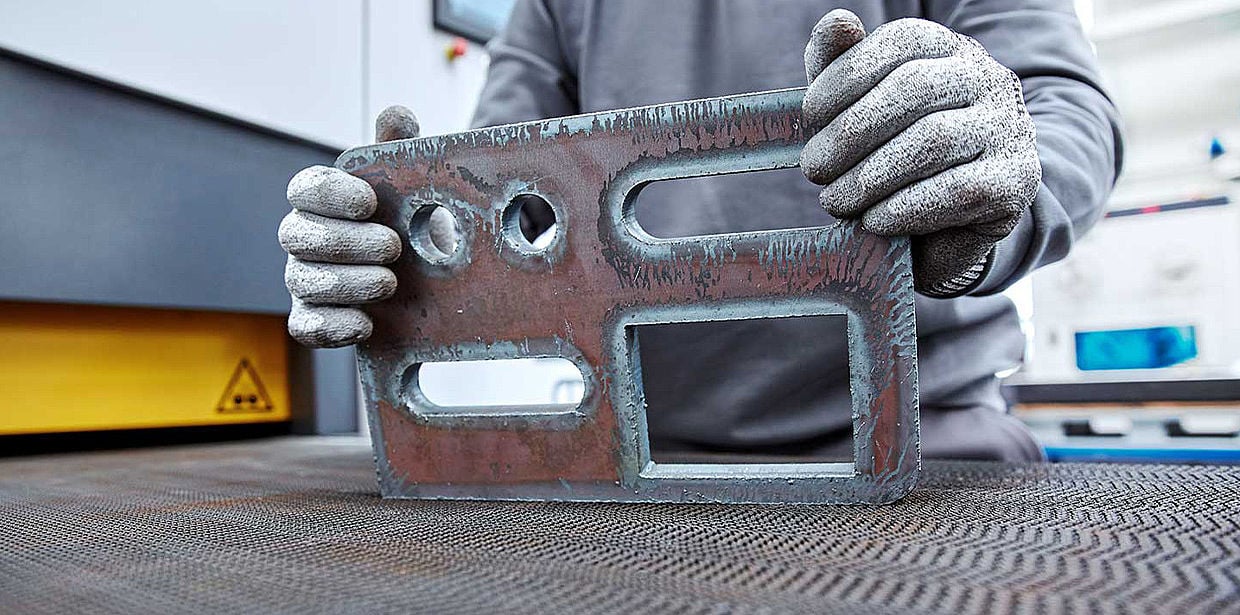1. Deburred parts and sheets provide an aesthetic look.
Deburring machines not only help to avoid injuries caused by sharp edges – Grinding the parts also creates a clean surface finish. As a fabricator of sheet metal parts and components, you can impress your customers with an appealing and aesthetic look that is consistent throughout the entire order.
Summary of the most important deburring techniques
Deburred sheet metal parts today are a sign of quality and a must-have to remain competitive. We will give you an overview of all the important deburring methods and techniques.
Simply deburred: These are the most important techniques in automated deburring
2. Improved paint adhesion thanks to rounded edges.
Rounding the inner and outer contours of the parts edges ensures that every type of paint or coating can be applied reliably and with lasting adhesion. That is why rounding edges is an essential part of the deburring process. With a powder coating, zinc coating, wet coating or cathode dip coating – none of these adhere well to sharp edges and the paint coats eventually flake off. As such, rounding the edges is an effective step. It enables an even application of the coatings on the part’s edges and serves to prevent corrosion. Adequately rounded edges are especially important for manufacturers of construction or agricultural machinery: edges rounded with an automated deburring machine help to provide the finished components with reliable corrosion protection.
3. Effective processing without an oxide layer.
Laser cutting parts with oxygen creates an oxide layer on the side of the parts or sheets, which can have a negative impact on downstream processing. This oxide layer can cause the coating to flake off, leaving behind patches of rust. Oxidation also adversely affects the welding process: The oxide layer between the parts may prevent consistent welding results. Strictly speaking, removing the oxide layer represents a separate process. However, within limits, special deburring tools can also handle the task. Blasting procedures are another alternative but are rather expensive and time consuming.
Many sheet metal fabricators have realized that deburring produces parts with higher quality, simplifying the downstream processing. This ultimately saves both time and money. Clean, deburred parts and sheets are easier to assemble, paint and weld. They also reduce potential wear on downstream equipment. Burrs on the parts can also damage tools in other equipment such as the leveling rollers in a parts leveler. That is why ARKU has developed its lineup of deburring machines to ensure perfect leveling results. The deburred parts place less strain on other equipment, therefore reducing downstream processing costs.
Deburring enhances the quality in sheet metal

Deburring edges of parts and sheets is an essential step in your sheet metal processing chain. Deburred workpieces with a perfect surface enable a problem-free production chain. Consequently, deburred sheet metal parts provide you with a key competitive advantage.
Learn more about our deburring machines.



